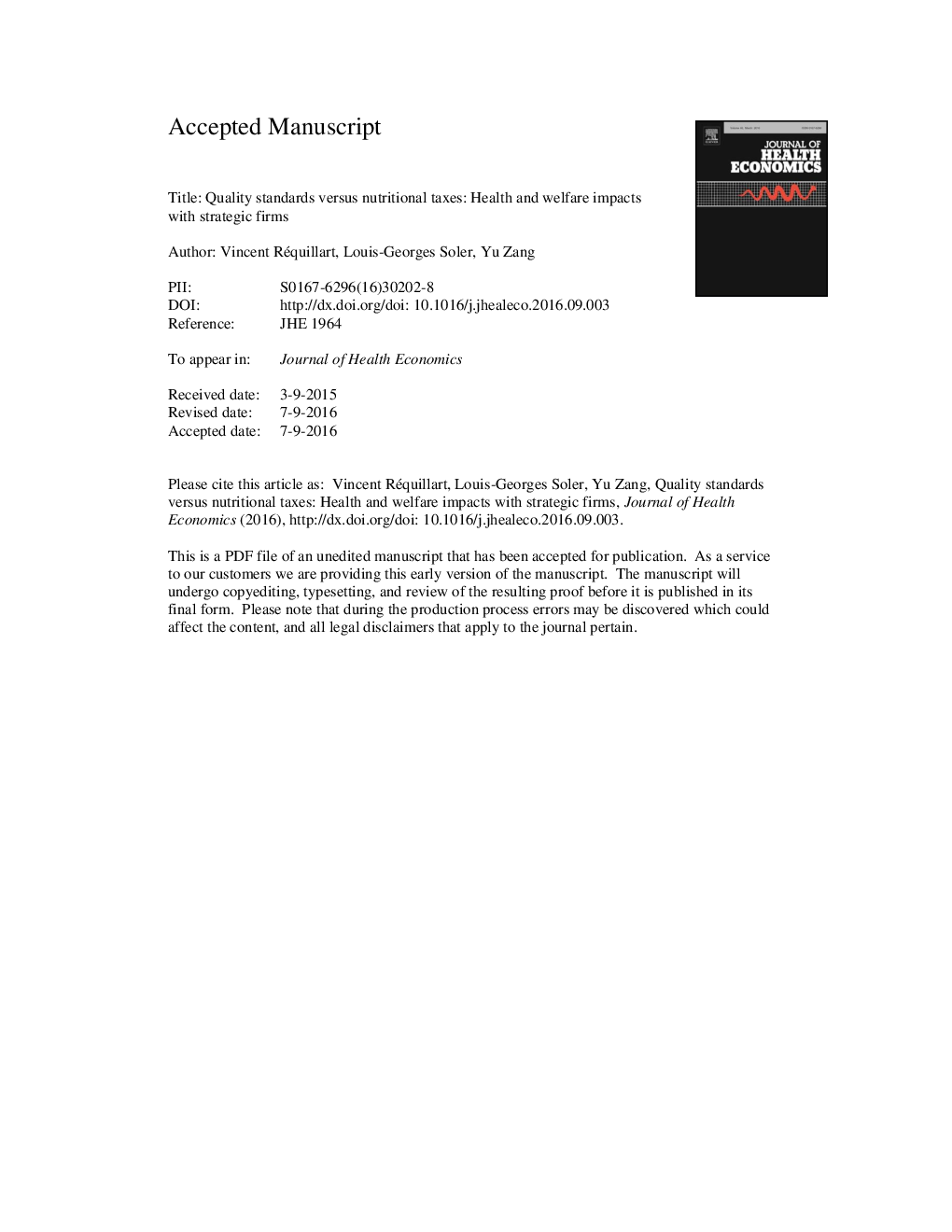| Article ID | Journal | Published Year | Pages | File Type |
|---|---|---|---|---|
| 5100814 | Journal of Health Economics | 2016 | 54 Pages |
Abstract
The goal of this paper is to better understand firms' strategic reactions to nutritional policies targeting food quality improvements and to derive optimal policies. We propose a model of product differentiation, taking into account the taste and health characteristics of products. We study how two firms react to alternative policies: an MQS policy, linear taxation of the two goods on the market, and taxation of the low-quality good. The MQS and the taxation of the low-quality product are the preferred options by a social planner. If taste is moderately important, the MQS policy is chosen by a populist and a paternalist social planner. If taste is a major component of choice, the populist planner chooses to tax the low-quality product whereas the paternalist planner prefers the MQS policy. Finally, for a paternalist social planner, an MQS-based policy always allows for higher levels of welfare than an information policy alone.
Related Topics
Health Sciences
Medicine and Dentistry
Public Health and Health Policy
Authors
Vincent Réquillart, Louis-Georges Soler, Yu Zang,
